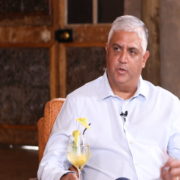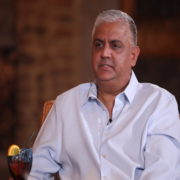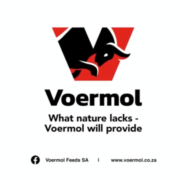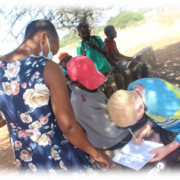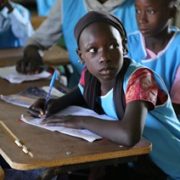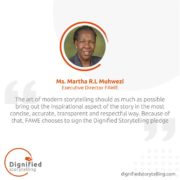By Monica Mararo and Dorise Ng’ong’a – FAWE Kenya
For girls, everyday counts. We ought to protect their right to education during this unprecedented disruption and beyond. COVID-19 has pushed inequalities in education to the breaking point, disproportionately affecting adolescent girls. This crisis is underlining existing challenges, particularly the gender digital divide and could roll back decades of progress on gender equality and girls’ education.
In Kenya, legal and political advances to ensure gender equality in education find strong obstacles to their implementation in schools, online learning platforms, for example disadvantage girls. Government investments towards education have been affected as they have cut the education budgets and re-allocated the resources to health since the onset of the COVID-19 pandemic. This adversely affects girls’ enrolment.
Existing gender disparities are exacerbated by the pandemic and are likely to affect women’s and girls’ ability to continue with their education. The worsening COVID-19 pandemic is causing prolonged social and economic disruptions that are yielding unintended consequences including economic and food insecurity, and challenges in accessing healthcare and education
Girls and women are discriminated against in education in terms of access, retention, completion, learning outcomes and career choices, resulting in disadvantages that go beyond schooling and the school environment. FAWE Kenya acknowledges that girls and women may be more overburdened by unpaid work, unable to continue their learning and are facing growing domestic violence these risks jeopardize their return to education. Additionally, Sexual and gender-based violence coupled with restricted access to reproductive health, inadequate social support services may increase teenage pregnancies.
Girls’ early school leaving is due to many obstacles that stand in the way of women and girls fully exercising their right to participate in, complete and benefit from education. These factors include poverty, geographical isolation, minority status, disability, child marriage, adolescent pregnancy, discriminatory gender norms in society, child Labour, gender-based violence, traditional attitudes about the status and role of women and the lack of easy and safe access to schools near where they live. These girls need to be given a second chance to re-join education systems, and accelerated learning opportunities so that they can catch-up on their time lost.
Despite progress, more girls than boys remain out of school and therefore FAWE Kenya’s key advocacy work at the regional and national level include Participation in the development of the School Mentorship Policy 2018; Gender in Education and training policy; School Health Policy 2019; Re- entry policy 2020; and ASRH Policy 2015. Apart from providing technical support to the Ministry of Education in developing the Parental Engagement and Empowerment guideline with focus on enhancing parental support in eradicating FGM/C, the organization has also played a key role in integrating gender into education system using Gender Equality Strategy for CESA2016-25. In addition to that, FAWE Kenya is an active member of Technical Working Group for SDG4 and CESA, and a nominated member of the Education Monitoring Committee where its main mandate in to monitor progress made by the ministry of education in integrating gender in education system. In the same way, FAWE Kenya also led CSOs engagement with Kenya Institute of Curriculum Development (KICD) in integrating human sexuality into the Reform School Curriculum.
To address factors of exclusion and in efforts to promote the right to education and support the achievement of the SDGs, the government should prioritize the leadership of girls and women and recognize their role as agents of change. They should systematically and meaningfully integrate them in consultations and decision-making on COVID-19 education response and recovery planning, from needs assessments to the design of remote learning opportunities, and other interventions to plan and promote life-long learning. FAWE Kenya Chapter is an active partner in the Kenya Education Taskforce Addressing effects of COVID-19 in the education sector.
The rethinking of education systems post COVID-19 provides a unique opportunity to ensure that all out of schoolgirls are included in all school reopening plans, and that plans ensure continuity of learning and support for all girls, including the most marginalized. The current pandemic is yet another reminder that education systems need to become more resilient to pandemics and should put in place mitigation plans for future crises and disruptions to education.
A failure to prioritize the needs of women and girls in COVID-19 responses risks further entrenching disadvantages. Without focused action, we will lose the momentum we already gained in advancing education and gender equality, and risk going backwards
FAWE Kenya therefore promotes an integrated and coordinated approach that addresses girls’ holistic education, health and protection needs. We advocate for catalyzing cooperation between teachers, school administration, families and communities, and support cross-sectoral collaboration to ensure an inclusive and gender-responsive system that safeguards rights. Because her education leads to a better future for her, and a better world for us all.

